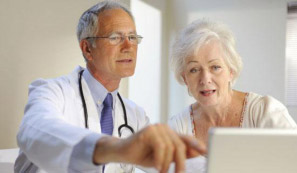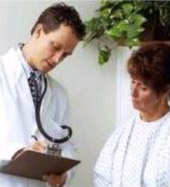Is the medical model the right way to support people with long term medical conditions?
I am writing this as a concerned health professional with experience of the NHS for over two decades and also as a psychotherapist, with an appreciation of why individuals may behave contrary, to what might be thought of, as against their best interest. My thoughts are my own. I have used the term ‘patient’ reluctantly; this term, inherent in the medical model is probably the most familiar to my readers.
 The first paradox I encounter is that the medical model extrapolates clinical evidence obtained from Randomized Controlled Trials (RCT) to individuals. Is it appropriate to apply objective data (data aiming to be objective) directly to an individual subject?
The first paradox I encounter is that the medical model extrapolates clinical evidence obtained from Randomized Controlled Trials (RCT) to individuals. Is it appropriate to apply objective data (data aiming to be objective) directly to an individual subject?
Secondly the general assumption of the medical model is that the ‘patient’ wants his illness to progress slowly to maximise life expectancy, and consequently there is an implicit power differential that the health professional has the knowledge to help the patient achieve this outcome.
Thirdly this implicit power differential can be disempowering for the ‘patient’, this can have a variety of consequences:-
- He rebels against the health professional and so behaves contrary to advised,

- He submits to the Health Professional; complies but is not doing so for themselves and so may become angry, frustrated, depressed or rebellious
- He becomes dependent on the Health Professional and loses self autonomy
- He avoids the situation; begins to fail to attend and aims to manage their illness on their own,
- It can prevent a significant number of ‘patients’ from asking personal or challenging questions, resulting in dissatisfaction.
- It creates additional barriers to forming healthy, useful relationships, ‘patients’ being labelled as ‘poor attendees’ ‘non-compliant’, ‘troublesome’, ‘time consuming’ and sometimes relatives also being labelled similarly.
Finally (in this blog at least) the NHS does not appear; yet, to add equal weighting to Patient Reported Outcome Measures (PROMs) compared to mortality rates or length of hospital stay, as a measure of its success.
 The outcome of the medical model, to varying degrees is that individuals with long term conditions have an increased incidence of mental illness, unemployment, and reliance on others for financial support, the latter most likely due to lack of independence but, ironically, on the positive, possibly live longer than had they not had health care input.
The outcome of the medical model, to varying degrees is that individuals with long term conditions have an increased incidence of mental illness, unemployment, and reliance on others for financial support, the latter most likely due to lack of independence but, ironically, on the positive, possibly live longer than had they not had health care input.
Health professionals declare that they should knowingly do no harm. Currently interpreted as insuring the ‘patient’ has been provided with everything they need to know (within their capacity) regarding how to manage their illness appropriately, and which medication to take. Is failure to provide this unasked for information being negligent? I have indicated doing so may in fact cause more harm than not.
What is the alternative?
It is difficult to change a culture. As I see it there are two factors that need addressing. The first is the power and authority that is given to knowledge by health professionals. Knowledge is only valuable to those that seek it. An individual will value knowledge about his illness when he has sought it and that is likely to be when he will find it applicable and appropriate for his own personal needs. As health professionals we need a new set of skills. We need to know how to use our ‘expensive’ time to listen to the person sat facing us, and hear them as a fellow human being who has to deal with what might colloquially be called ‘crap’ and then give them the information they ask for and is relevant for them. This month NICE has introduced a new guidance, on Behaviour Change, which may help http://guidance.nice.org.uk/PHG/55
Secondly, there are many theories regarding the roles we create for ourselves, our need to fit into social norms-conforming; they can be below the surface or in the sub conscious. One of these is the relationship between patient and doctor/ health professional. I described this relationship as one about power earlier. I do wonder whether we used different labels, ‘patients’ became people and doctors or health care providers were ‘advisers’, as any other advisor, available when needed. Not thrust upon us like a PPI sales man.
I am aware, people do not know what they do not know, and this can be where my ideology fails. May I just pose that we, Health Professionals- need to shift our priorities from informing to listening?

